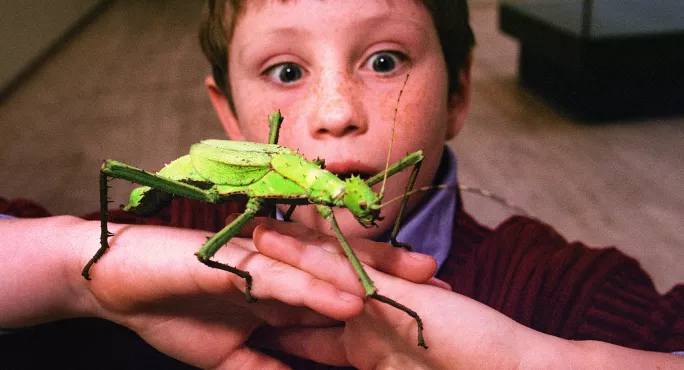What we lose if school trips fall victim to Covid

I spoke to a mum recently who recalled the impact a week-long sailing trip with the Scouts had had on her son. When she met him back at the airport, he seemed almost physically changed. His bearing was more upright, his voice projected a little more confidence and the sight of him singing joyously with new-found friends as they strode through the arrivals hall filled her with happiness.
This was a boy changed by his experience of literally learning the ropes at sea. And the impact lasted in the years that followed. Ever since that trip, he has been more inclined to push himself, more eager to explore the world and more likely to see opportunity, rather than danger, in the unfamiliar.
As his mum said, surveying the dramatic impact of that week at sea, there is much more to education than what goes on in the classroom.
It is worrying, then, to think that, as a result of the pandemic, some secondary students may leave school having had few, if any, opportunities for a long trip away. With the continuing uncertainty over Covid, certainly, organising a foreign trip does not seem an attractive prospect for schools just now.
Not that you have to go abroad for a sense of adventure or the exotic.
- Related: Could virtual reality field trips be the future of geography?
- Days out: Make the most of school trips to museums
- Quick read: Why residential trips must not be a victim of Covid
- Long read: Trips abroad give students access to the world
Years ago, a secondary headteacher told me about the impact of a trip to Dynamic Earth, the science centre in Edinburgh. Some students at the school, in an area of significant poverty, had barely ever been more than 10 miles from their home in North Lanarkshire. The trip to the capital, he said, was a huge eye-opener for teenagers who previously only had a dim sense of what Edinburgh Castle or the Scottish Parliament looked like. The capital city had been remote to them, and Aberdeen or Inverness might as well have been the moon, the head told me. Weeks after the trip, students were still stopping him in the corridor to talk about it.
School trips are not a luxury - they are potentially life changing. When I went to Paris just after my 13th birthday, having never been outside the UK before, the impact was profound. I was set upon a path that led to studying French at university. Ever since I got on the bus for the 24-hour drive back from Paris to Aberdeen, I have retained a deep fascination for French life and culture.
When residentials for pupils in the final year of primary school were cancelled en masse as the pandemic took hold in spring 2020, it was more than a fun little trip that they lost. These excursions are rites of passage before the daunting move up to secondary school, a bonding experience that is often the most lasting and profound memory of seven years at primary school.
Writing for Tes Scotland in March 2021, South Lanarkshire primary headteacher Alex Stark spelled out what schools stand to lose if extended residential trips are lost.
“The fact that [pupils] are living together for four or five full days allows these relationships to grow, both among the children and between them and school staff,” she wrote. “We see this then transferring back into the classroom and having a positive impact on future learning and relationships.”
School trips may take some time to bounce back from Covid, and perhaps they will never return on the scale that we knew before the pandemic.
It will be no simple matter to get trips up and running again. Myriad barriers could stand in the way, whether eye-watering insurance premiums, anxiety about possible cancellations while Covid remains a threat, or schools just being out of the habit of doing this sort of thing.
But, as countless school staff and students will testify, it will be more than worth the effort.
Henry Hepburn is Scotland editor at Tes. He tweets @Henry_Hepburn
You need a Tes subscription to read this article
Subscribe now to read this article and get other subscriber-only content:
- Unlimited access to all Tes magazine content
- Exclusive subscriber-only stories
- Award-winning email newsletters
Already a subscriber? Log in
You need a subscription to read this article
Subscribe now to read this article and get other subscriber-only content, including:
- Unlimited access to all Tes magazine content
- Exclusive subscriber-only stories
- Award-winning email newsletters
topics in this article



